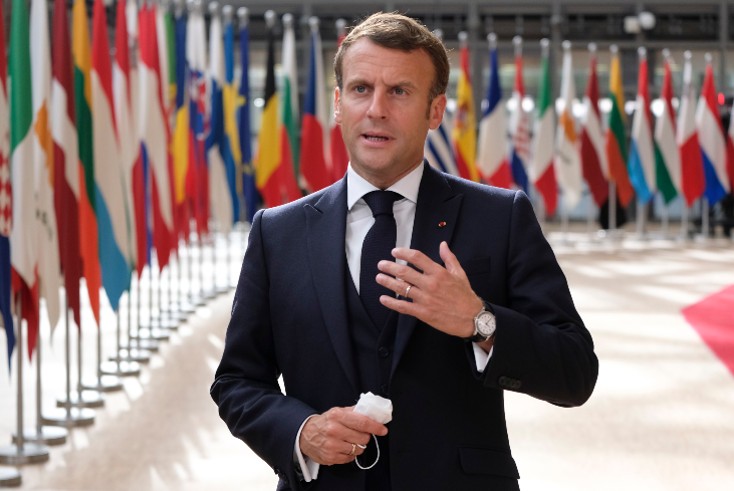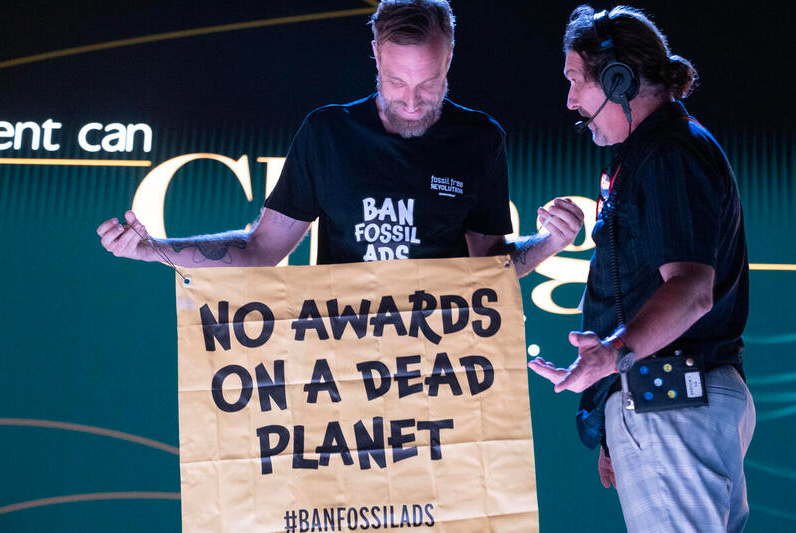France’s fossil fuel ad ban: effective or just a gesture?

France officially banned ads for fossil fuels last week. But beyond grabbing headlines and improving political sentiment among green supporters, is such a media policy actually effective?
While it will no longer be legal to promote petroleum energy products, natural gas ads will still be permitted, and fossil fuel companies will still be allowed to advertise other products, such as those related to sustainable energy, more generally.
Organisations such as Greenpeace have been calling for an advertising ban on fossil fuels since October 2021, and have compared Big Oil to Big Tobacco in its misleading of the public with deceptive advertising campaigns for decades.
While France is the first country to institute such a ban, it’s unlikely to be the last. Already the government for the city of Sydney is considering similar measures that go even further than France’s.
It also isn’t the first time governments have stepped in to institute broad advertising bans. Outdoor ad bans, or restrictions on outdoor advertising in urban centers like São Paulo, Chennai, Grenoble, and Paris, were fashionable last decade, and the UK has moved to limit advertisements on unhealthy foods to children beginning in January of 2024.
‘Unlikely to make much difference’
The moves from France and Sydney come on the heels of a heavily protested Cannes Lions. Greenpeace stormed WPP’s beach, and one former-Lions winner disrupted the opening ceremony by walking on stage with a sign that read: “No awards on a dead planet”.
Greenpeace protests at the main entrance to the Cannes Lions Festival of Creativity this morning to ban fossil fuel advertising. pic.twitter.com/lwu2fhe5a3
— Anthony Kennedy (@anthonykennedy) June 23, 2022
Among the goals of the protestors: deplatforming companies they say contribute substantially to harming the planet—don’t take their advertising dollars and don’t help promote their businesses.
But when it comes to fossil fuel companies, does revoking their ability to advertise to the public demonstrably help sustainability policy?
Not particularly, says Advertising Association CEO Stephen Woodford, who also oversees Ad Net Zero, the global advertising community’s “response to the climate emergency”.
“I think the general view that we would have is that advertising bans are sort of politically high-profile, but in terms of effectiveness, in terms of changing behavior, very, very unlikely to make much difference,” argues Woodford.
For fossil fuels, which are relatively inelastic goods that are less responsive to the effects of advertising, Woodford notes there’s seldom evidence that restricting advertising will accomplish much in terms of tangibly reducing carbon.
“When you think about particularly petrol and diesel, you fill your car up when it’s nearly empty, not when you see an ad for Shell.”
Rather than a lack of ads, Woodford notes that the higher gas prices seen throughout the global economy in the spring and summer months will cause fuel usage to go down as people look to save money. In the long term, mass government-backed movements toward switching to electric vehicles will further decrease individual consumers’ fossil fuel usage, too.

Greenpeace: protested Cannes Lions in June
Some green organizations like Greenpeace agree that the policy is ineffective, but argue that it does not go far enough rather than it being inherently purposeless.
Greenpeace contends that fossil fuel companies should be completely banned from advertising as a matter of principle because all of their ads are inherently misleading to the public, even if they use ads to purportedly seek to promote sustainability.
Polluting companies’ advertising is more sneaky than this
They boast about their (tiny) investments in solar, not their oil wells, or their (few) electric cars instead of their SUVs
Time for a ban on all ads by these companies https://t.co/8X1FC5xT4vhttps://t.co/Q410RwQCuC
— Greenpeace EU (@GreenpeaceEU) August 23, 2022
Extinction Rebellion, another pressure group which has protest Cannes Lions, praised the policy change as a step to help remove “the fossil fuel industry’s influence” over the media.
‘Demonstrate the evidence’
Due in part to fuel’s relatively inelastic demand at the present, however, petrol companies also aren’t incentivized to actually spend that much on advertising the consumption of petrol, a highly regulated commodity, in the first place.
For large French media companies, the ad ban therefore likely won’t substantially harm advertising business, though smaller boutiques that work closely with fossil fuel companies may have to rethink their business model.
“I don’t really see it as a particularly major part of the advertising business,” says Woodford, adding: “There’s way more money being spent on sustainable choices.”
Woodford therefore calls France’s law “a gesture”, but believes that advertising does absolutely play an important role in nudging consumers along to more sustainable living.
“These are complex problems to solve for a society. The simplistic solutions maybe get headlines, but do they do anything of substance? Demonstrate the evidence. And I think there’s probably precious little evidence.”
Where advertising can play a role in creating market demand for better, sustainable products or alternatives is in more specific green policy interventions, such as the UK government’s 2020 policy to remove petrol cars from the road by 2030.
As Woodford says: “It’s those little day to day nudges that advertisers can do and retailers can do and everybody, every single company in the UK will be thinking about the sustainability of its operations, because they know there’s a backstop of 2050 where by law we will have to be net zero.”
In the US, the federal government passed its most substantive climate change legislation ever this month, much of which will provide incentives for consumers to switch to electric vehicles and energy companies to accelerate the switch to wind and solar power where possible. States, namely California, are also going a step further. Following the UK’s lead, The Golden State this week passed a law that will ban the sale of all new gasoline cars by 2035.
CA continues to lead the way:
“Experts said the new California rule, in both its stringency and reach, could stand alongside the Washington law as one of the world’s most important climate change policies.” https://t.co/l19OOcsLgF
— Gavin Newsom (@GavinNewsom) August 24, 2022
‘Legal, decent, honest, and truthful’
Such government action will increase shareholder and consumer demand for clean alternatives, subsequently increasing adspend for clean energy and transport as businesses adapt. The change has already begun ramping up, Woodford notes, pointing to the bevy of electric vehicle Super Bowl ads that aired this year.
Whereas zero of the 12 auto ads that ran during 2018’s Super Bowl were for electric vehicles, seven of the nine were for EVs in 2022, signifying a major, relatively quick shift in marketing priorities for car companies.
Other energy-intensive industries will have to take note. While the increase in electric vehicle representation was a positive step forward, this year’s Super Bowl was also inundated with ads for various cryptocurrencies, which require an incredible amount of energy to produce.
That’s tough to swallow for countries like the UK, which is already facing a historic energy crisis. But rising cost of living can actually also be a unique opportunity for brands and creatives to push for more sustainable living, says Woodford, who advocates for brands and advertisers to step forward with advice for both saving money on food and energy while simultaneously taking steps to live more sustainably.
Shifting demands present important opportunities. They’re also ones which brands and advertisers must take seriously and carefully, lest they be faced with severe legal consequences and accusations of greenwashing.
As a spokesman for the Advertising Association added: “It’s absolutely critical that any environmental claims, any sustainability claims, are legal, decent, honest, and truthful.”




